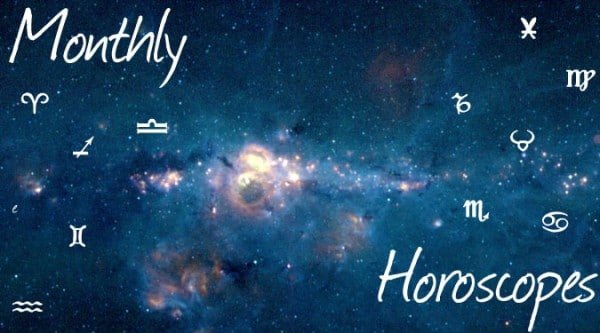Astrological Profiles of Prominence – William Shakespeare Part I
 ‘Life is as tedious as twice-told tale, vexing the dull ear of a drowsy man.’ – William Shakespeare
‘Life is as tedious as twice-told tale, vexing the dull ear of a drowsy man.’ – William Shakespeare
There is not much known of the life of William Shakespeare, but his legacy of words bear out, as much as his astrology, many of the tales of his soul, his inner workings and his pain. Born in Stratford-upon-Avon, UK on 23rd April, 1564, as with any bard, his depth of feeling gave birth to the gift of insight, his passion the fire for creativity. Bards are pioneers, explorers and martyrs sacrificing their contentment for benefit of others. Their words, empathic to the plight of the masses.
In delving into a deeper understanding of Shakespeare, it is best to begin with his first house. This is the harbinger of self, and in my astrological opinion, the soul; who a person is inside, in contrast to their outward manifestation as expressed through their Natal Sun.
William’s dramatic first house, in the tropical sign of Cancer, is begrieved, yet simultaneously blessed, by the placement of Mars in close proximity to the South Node. Known as the Dragon’s Tail, cut off from the grounding faculty of reason, the South Node can have the propensity to deeply unleash the energy of planets that venture closely to it. Mars creates harsh emotions in the sign of Cancer, and this is profoundly increased through a conjunction with the South Node. William was obviously very passionate. But, it is also likely that he had quite a temper.
Shakespeare’s Mars, and his South Node, are both in the lunar mansion of Ardra. Ardra brings revelation through stormy emotions. Timeless souls bear the pain of not being made for this world, yet having to exist within it. Such must have certainly been the case for Shakespeare, as is borne out through his above words.
Much more can be understood of William’s creative gift through a deeper explanation of the lunar mansion of Ardra. This asterism is ruled by the North Node, known for intensity, and in the Vedic system of astrology, in contrast to the Western system which is the main focus of this profile, Ardra occupies the constellation of Gemini, ruled by Mercury, the Messenger. In this case, the intensity of the North Node gives a penetrating quality to the mind, ruled by Mercury, to create an acutely prolific, and profound gift.
In expounding more elaborately the manner in which his creative talent was likely, as with all creatures of great awareness, a result of profound sensitivity, William Shakespeare’s Natal Mars and South Node form a sextile with the Sun in the tropical sign of Taurus. Taurus, ruled by Venus, itself is the expounder of great creativity. But, additionally, his Sun occupies the lunar mansion of Bharani. In following our earlier manner of explaining the energies of the lunar mansions, Bharani, ruled also by Venus, forms the latter part of the constellation of Aries, governed by Mars. Here we can understand more deeply William’s passionate creativity. But, also, the energy of Bharani takes things away, which suggests that Shakespeare likely experienced deep suffering as a result of his profound consciousness and creativity.
To gain a more thorough understanding of this erudite poet, no examination is complete without a look at the placement of his natal Mercury. Occupying the active and impulsive tropical sign of Aries, Shakespeare’s Mercury, connected with writing and words, is strengthened by being placed in a space of exaltation, the tenth house, or midheaven. Planets occupying the midheaven are almost exactly overhead at the the time of birth. The tenth house is where one would go to understand the concept of career. William’s Mercury was placed in the lunar mansion of Revati. Revati, ruled by Mercury, and placed in the latter part of the constellation of Pisces, which in Vedic Astrology is ruled by Jupiter, is the tributary of creative intelligence. But, it is also the significator of deep sensitivity. William’s Mercury forms a tense aspect with both Mars and the South Node.
All of the subjects of our Astrological Profiles of Prominence are celestially inspired. They simply enter out thoughts, and incessantly we discover that there is much being activated in our subject’s astrology. Much of Shakespeare’s astrology is currently sparked by transit. This will be elucidated more fully in the second part of our Profile of Prominence. In closing, please allow me to stress the significance of Shakespeare’s natal Mercury recently currently being transited by several planets in the lunar mansion of Revati. Hence, we see the timeliness of his words, from Hamlet, of rising up against oppression:
To be, or not to be, that is the question:
Whether ’tis nobler in the mind to suffer
The slings and arrows of outrageous fortune,
Or to take arms against a sea of troubles
And by opposing end them. To die—to sleep,
No more; and by a sleep to say we end
The heart-ache and the thousand natural shocks
That flesh is heir to: ’tis a consummation
Devoutly to be wish’d. To die, to sleep;
To sleep, perchance to dream—ay, there’s the rub:
For in that sleep of death what dreams may come,
When we have shuffled off this mortal coil,
Must give us pause—there’s the respect
That makes calamity of so long life.
For who would bear the whips and scorns of time,
Th’oppressor’s wrong, the proud man’s contumely,
The pangs of dispriz’d love, the law’s delay,
The insolence of office, and the spurns
That patient merit of th’unworthy takes,
When he himself might his quietus make
With a bare bodkin? Who would fardels bear,
To grunt and sweat under a weary life,
But that the dread of something after death,
The undiscovere’d country, from whose bourn
No traveller returns, puzzles the will,
And makes us rather bear those ills we have
Than fly to others that we know not of?
Thus conscience does make cowards of us all,
And thus the native hue of resolution
Is sicklied o’er with the pale cast of thought,
And enterprises of great pitch and moment
With this regard their currents turn awry
And lose the name of action. – William Shakespeare, Hamlet


